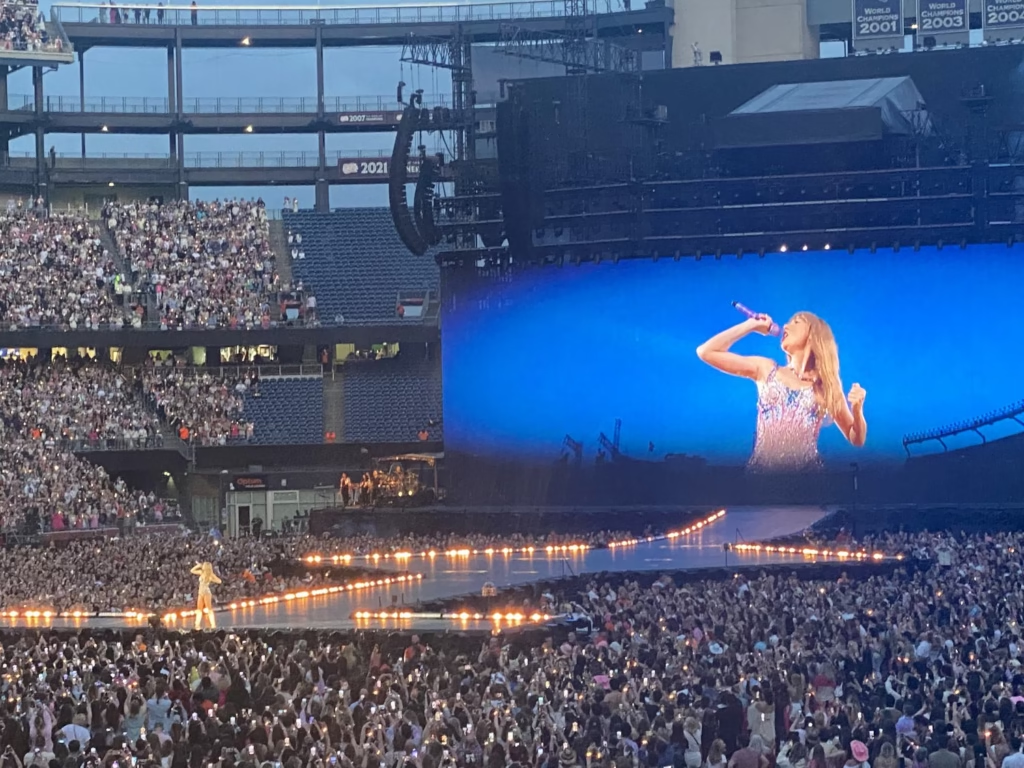
Taylor Swift, a name synonymous with chart-topping hits and a profound influence on modern music culture, has once again captured headlines with a move that has left her fans, the Swifties, both puzzled and intrigued. The sudden disappearance of her albums “Reputation” and her self-titled debut from Spotify has sparked a flurry of speculation, theories, and discussions across social media platforms. Here’s a deep dive into the reasons behind this strategic withdrawal, intertwined with the historical context of Swift’s relationship with streaming services.
The Initial Withdrawal from Streaming
Taylor Swift‘s relationship with streaming platforms has been tumultuous, to say the least. In 2014, Swift made a bold statement by pulling her entire catalog from Spotify, a move that was largely seen as a critique of the platform’s compensation model for artists. This decision was rooted in her belief that music should not be free, advocating for a system where artists are fairly compensated for their work. Her album “1989” was notably withheld from streaming services upon its release, setting a precedent for her future interactions with digital platforms .
The “Reputation” Era and Streaming Strategy
The release of “Reputation” in 2017 was marked by a shift in Swift’s public persona and her engagement with media narratives surrounding her. Initially, “Reputation” was kept off streaming platforms for a brief period before being made available, reflecting her ongoing negotiation with how her music should be consumed in the digital age. This approach was part of a broader strategy to control the narrative around her music and its value, emphasizing physical sales over streaming .
The Masters Dispute: A Catalyst for Re-Recording
In 2019, a significant event unfolded that would influence Swift’s relationship with her own music: the sale of Big Machine Records, her former label, to Scooter Braun’s Ithaca Holdings. This sale included the masters of her first six albums, including “Reputation” and her debut. Swift’s vocal opposition to this ownership transfer, due to her personal history with Braun, led to a well-publicized feud. Her response was to re-record her albums, giving birth to the “Taylor’s Version” series, where she could own her new recordings and benefit directly from their streaming profits .
Current News: The Vanishing of “Reputation” and Debut from Spotify
As of early 2025, posts on X (formerly Twitter) have noted the absence of “Reputation” and Taylor Swift’s debut album from her Spotify discography . This move aligns with Swift’s ongoing efforts to control her musical legacy. Here are the key points:
Fan Clues and Theories: Speculation among fans suggests this might be a precursor to the release of “Reputation (Taylor’s Version).” The removal could be a strategic move to redirect fans’ attention to the forthcoming re-recorded versions, which Swift entirely owns .
Streaming Strategy Continuation: Swift continues to use her albums’ availability as leverage in the streaming ecosystem. By pulling albums, she not only controls her narrative but also influences how and when her music is consumed, possibly encouraging fans to purchase physical copies or wait for the re-recorded versions .
Legal and Contractual Maneuvers: It’s speculated that Swift might be navigating the legalities around her old contracts with Big Machine. Removing albums could be part of a broader legal strategy or simply a way to highlight the new “Taylor’s Version” releases.
Impact on Fans and the Music Industry
Streaming Services’ Response: Platforms like Spotify have historically responded to Swift’s decisions with mixed feelings. While they acknowledge her impact on listener engagement, they also face the challenge of keeping their service appealing when major artists like Swift make their content exclusive or unavailable.
Fan Reactions: Swifties have a history of engaging deeply with Swift’s moves, often turning them into cultural phenomena. The current removal has led to a mix of confusion, excitement, and theories about what this could mean for upcoming releases.
Industry Implications: Swift’s actions continue to set a precedent in the music industry, particularly regarding artist rights and the control over one’s own music catalog. Her strategy of re-recording albums to reclaim her music has inspired discussions about ownership, streaming economics, and artist autonomy.
Past Stories: Swift’s Streaming Saga
- The Apple Music Standoff: In 2015, Swift famously penned an open letter to Apple Music, criticizing their initial lack of payment to artists during the free trial period for new subscribers. Apple quickly reversed its stance, showcasing Swift’s influence in artist advocacy .
- Return to Spotify: After a period of absence, Swift returned her catalog to Spotify in 2017, reflecting a nuanced evolution in her approach to streaming, recognizing its importance in reaching a global audience while still advocating for better artist compensation models .
- The “Lover” Album: Released in 2019, “Lover” was Swift’s first album under her new deal with Universal Music Group, where she retained ownership of her masters, setting a new tone for her subsequent releases and re-recordings.
Coclusion
The disappearance of “Reputation” and Taylor Swift’s debut from Spotify is not just a headline-grabbing tactic but part of a broader narrative of control, legacy, and advocacy in the music industry. Swift’s ongoing battle for her music rights, her strategic use of streaming platforms, and her deep connection with her fan base illustrate a modern artist’s journey through the complexities of digital music distribution.
As we await further announcements, possibly about “Reputation (Taylor’s Version),” Swift continues to influence not only music consumption but also the discourse around artist rights and streaming economics. This latest move is a reminder of her power in the industry and her commitment to her artistic integrity, leaving fans eagerly anticipating what’s next in the “Taylor Swift saga.”
- How ‘Greetings From Your Hometown’ Reflects the Jonas Brothers’ Wyckoff, New Jersey Roots - July 29, 2025
- Upcoming Events of British Singer Charli XCX: Feel Her in a Wedding Celebration Mood - July 25, 2025
- Carly Rae Jepsen’s E•MO•TION 10th Anniversary Concert Set for August 19 at Troubadour in West Hollywood - July 18, 2025

